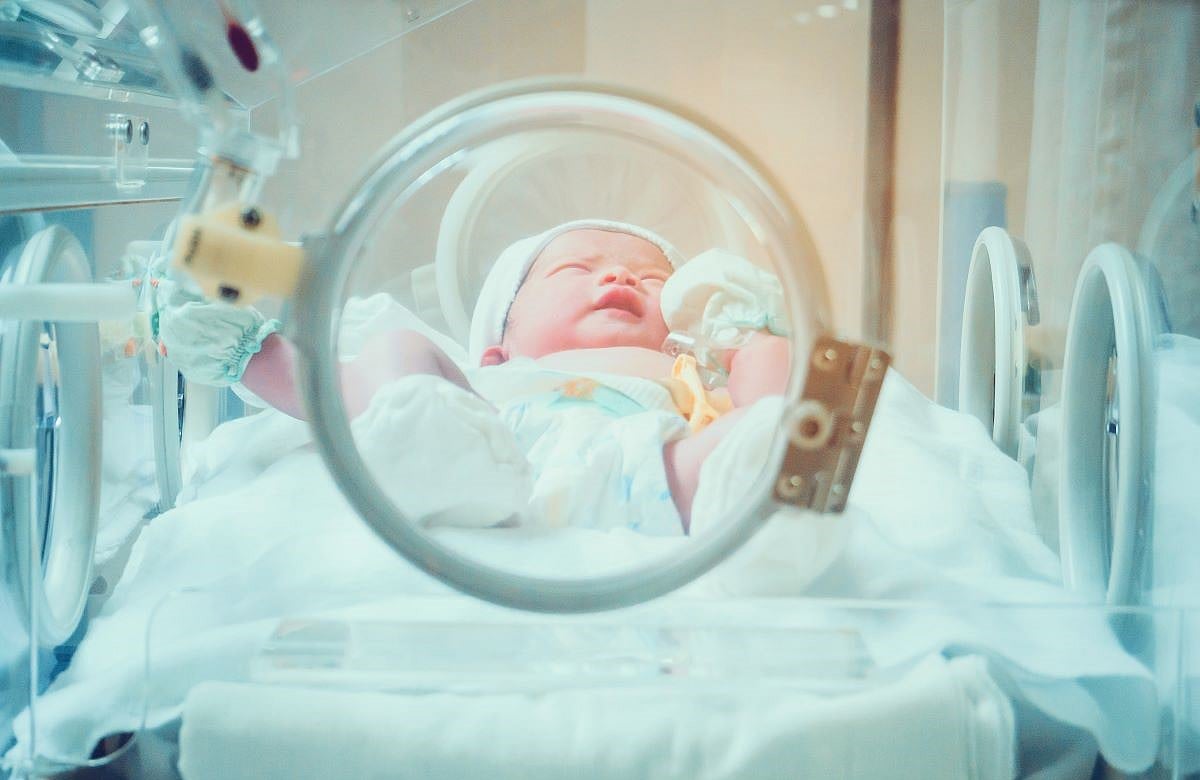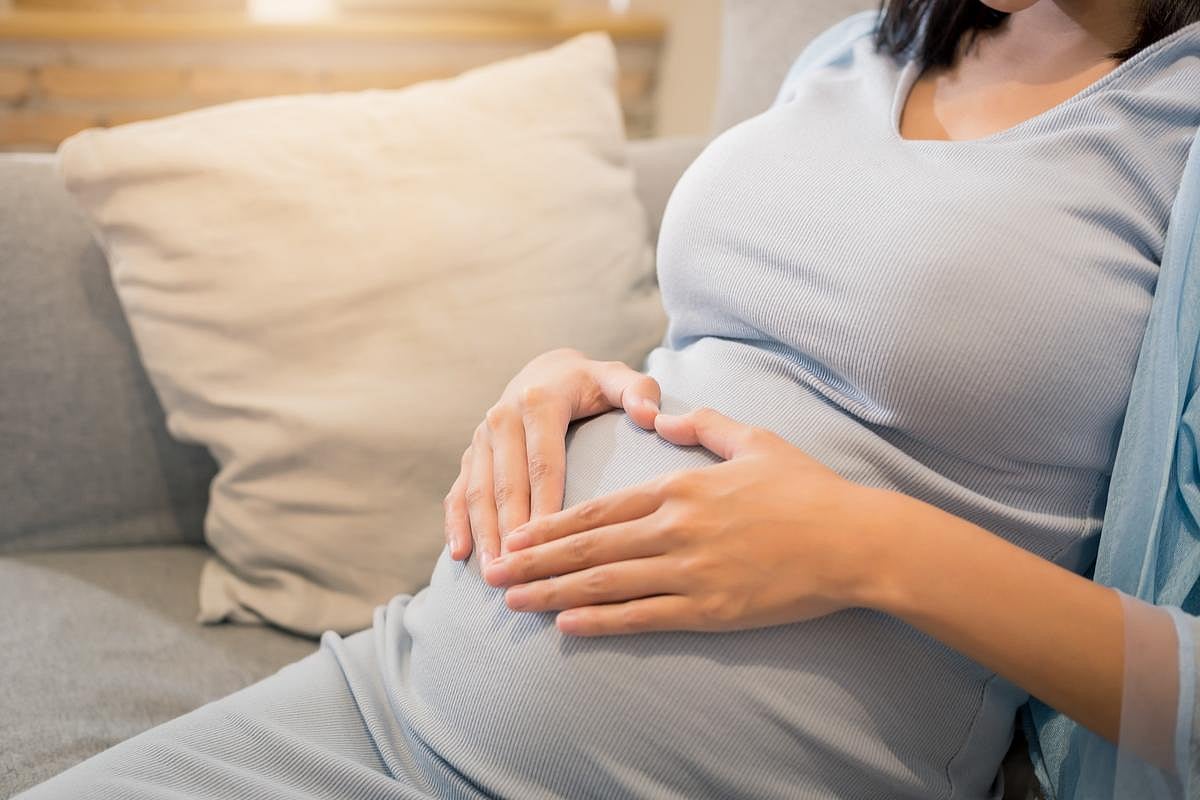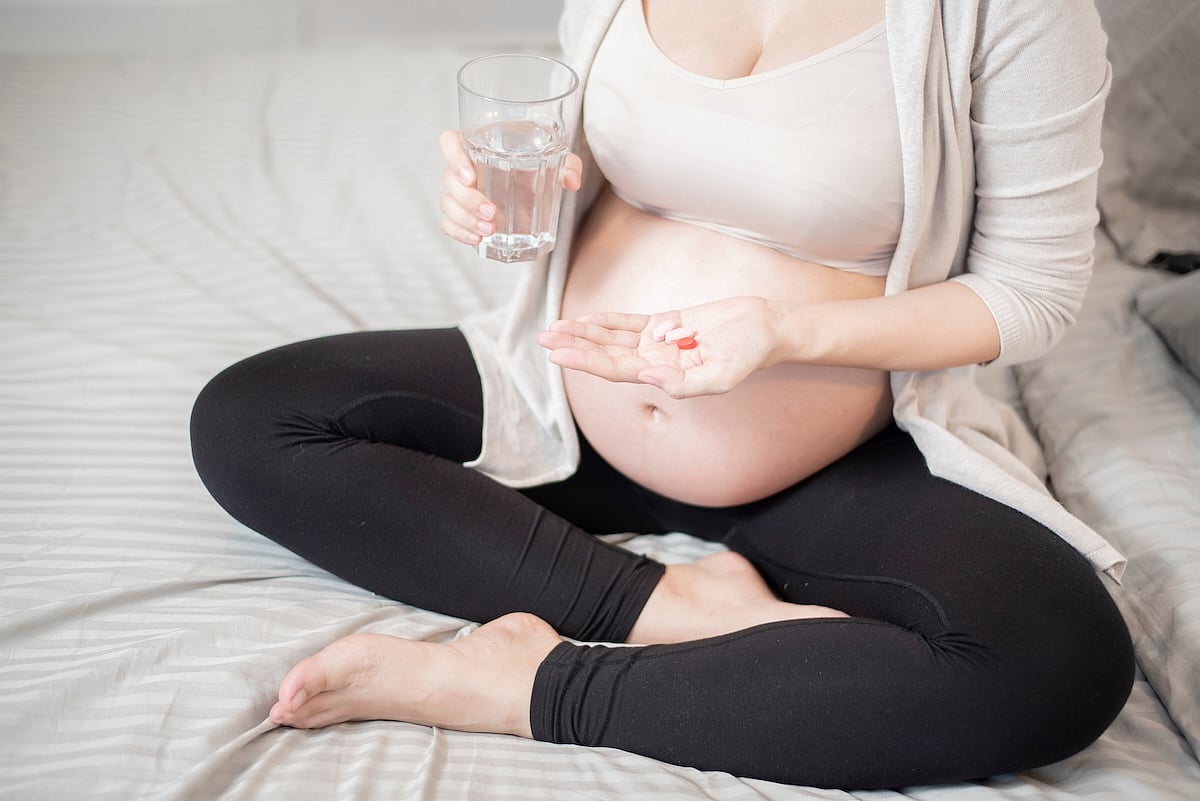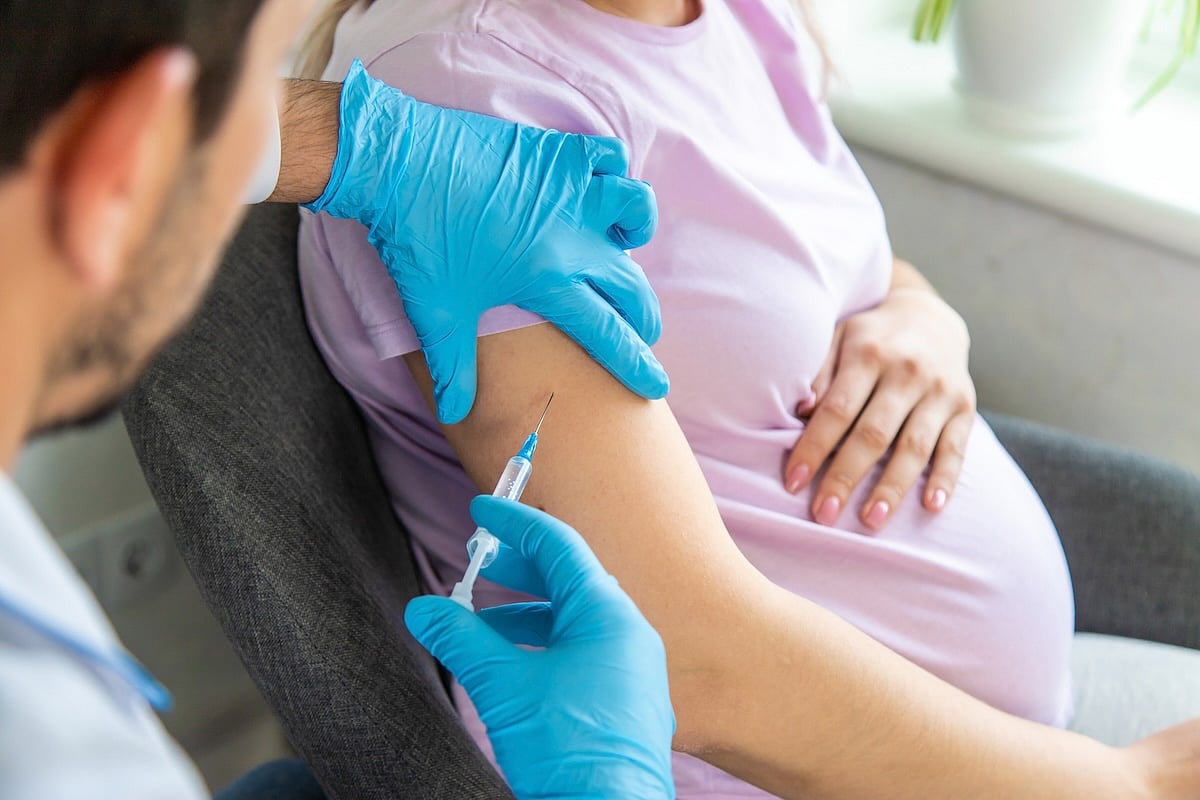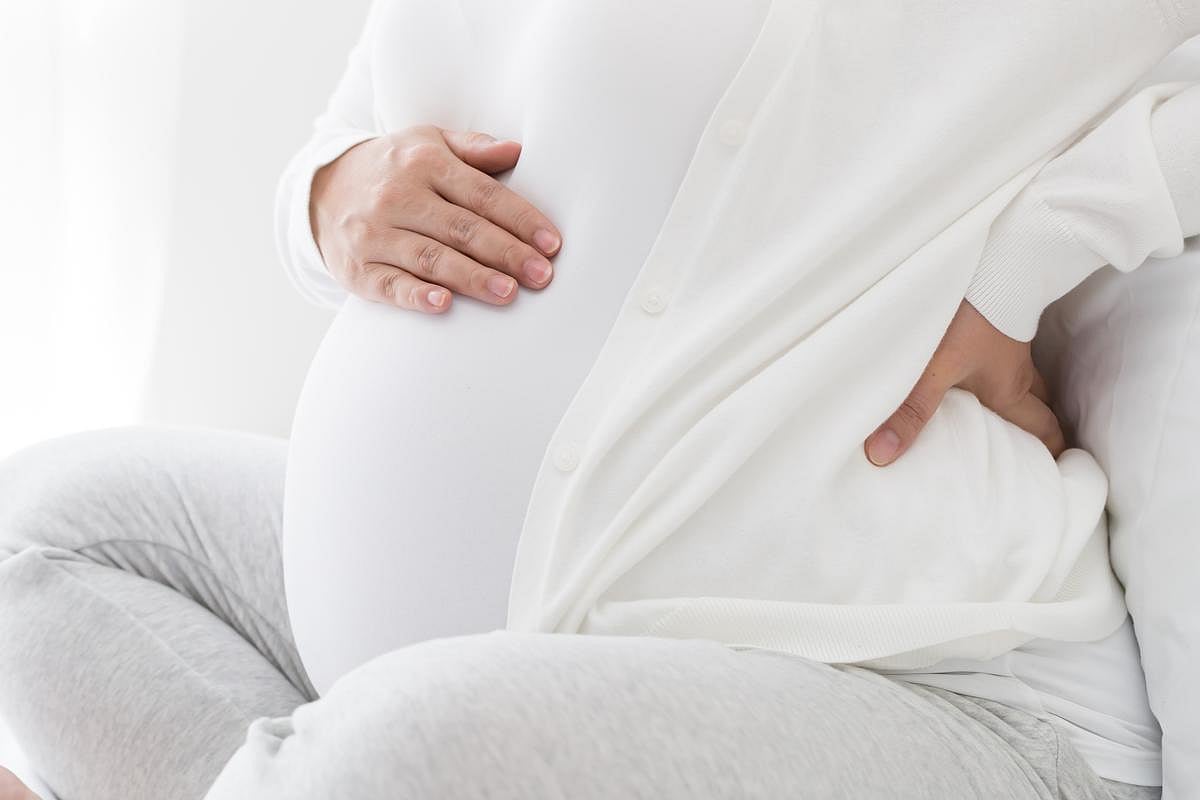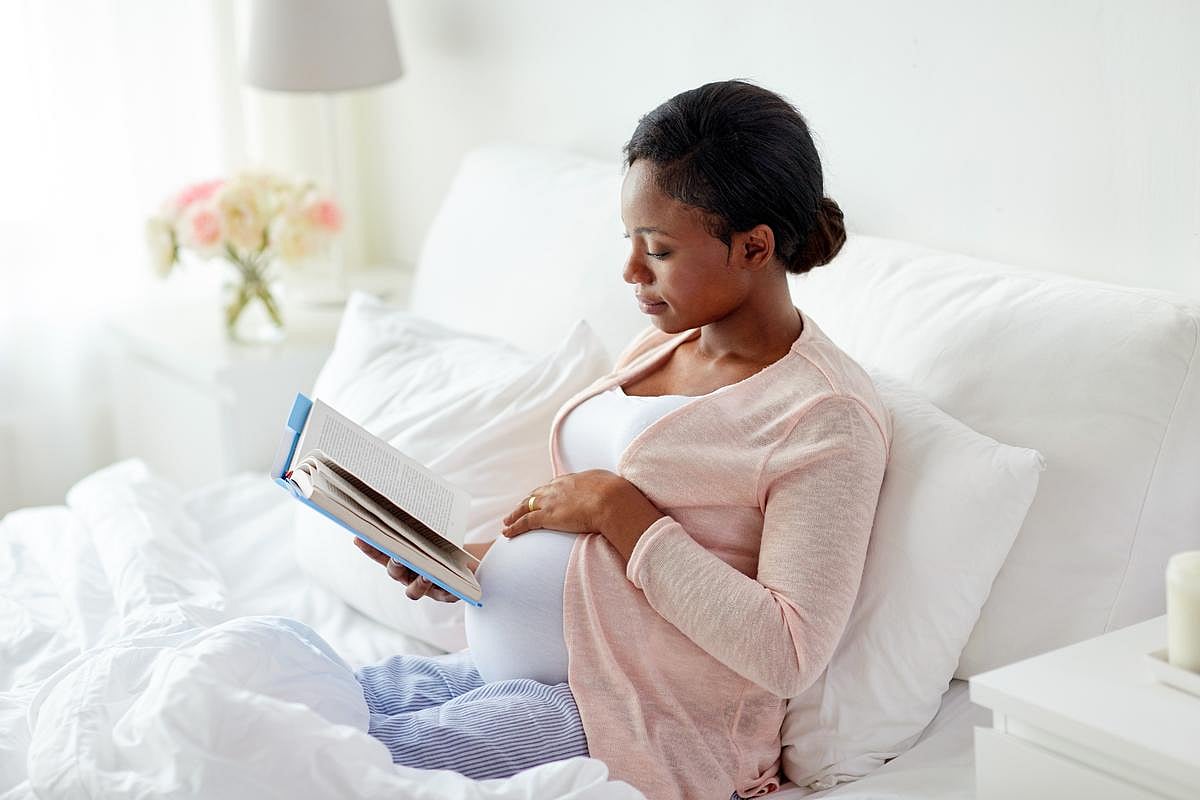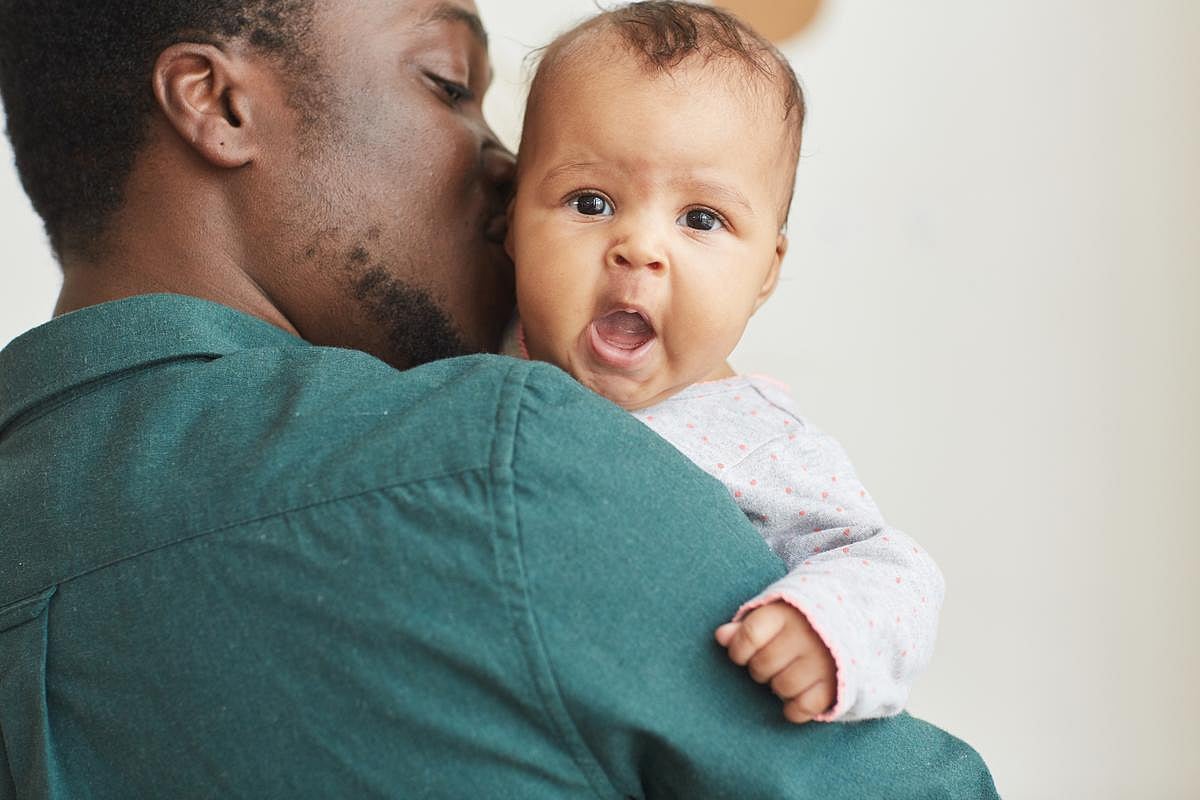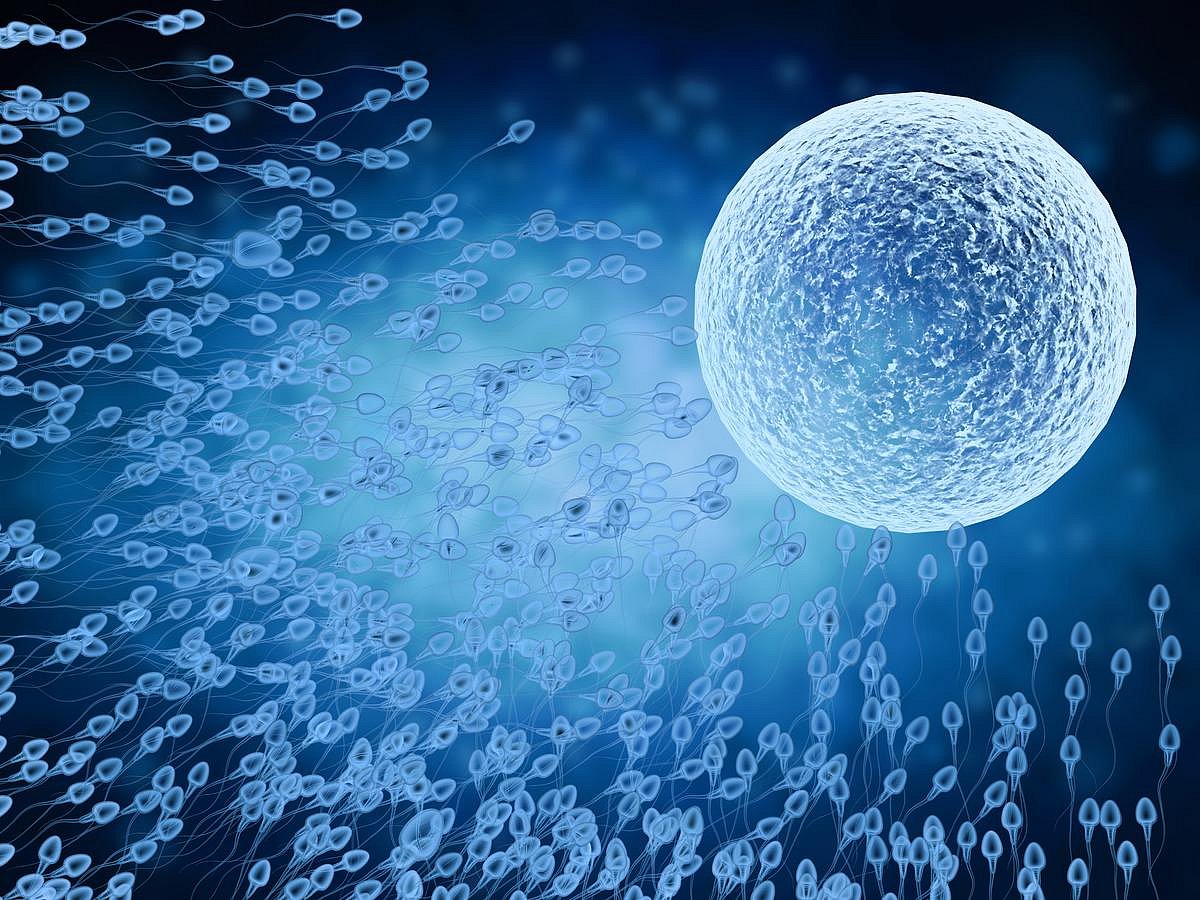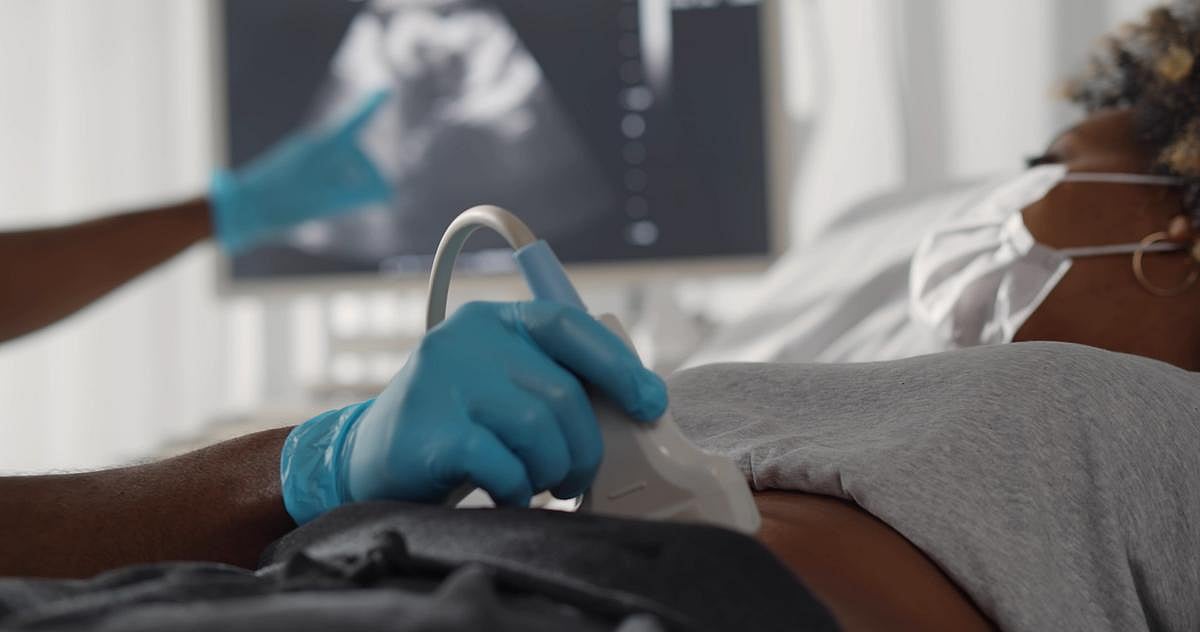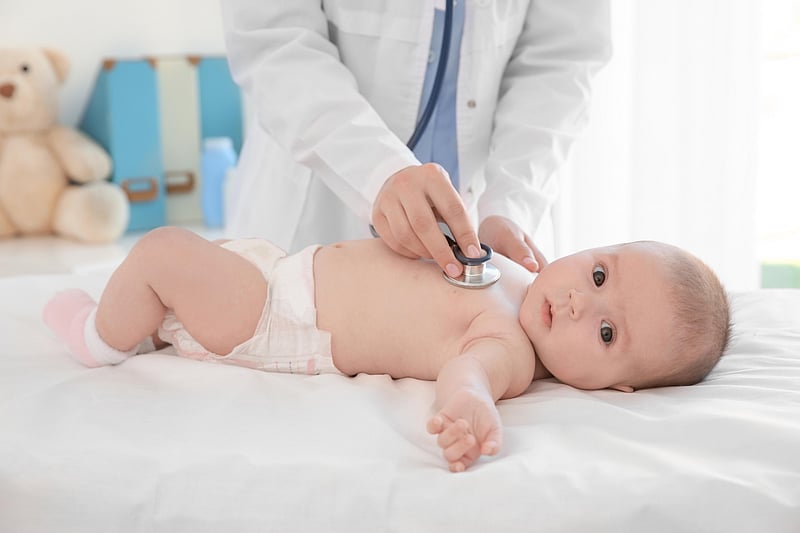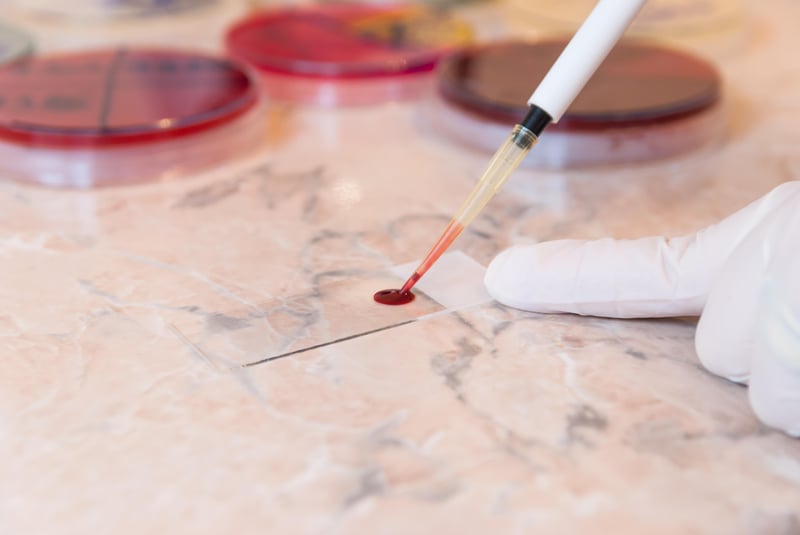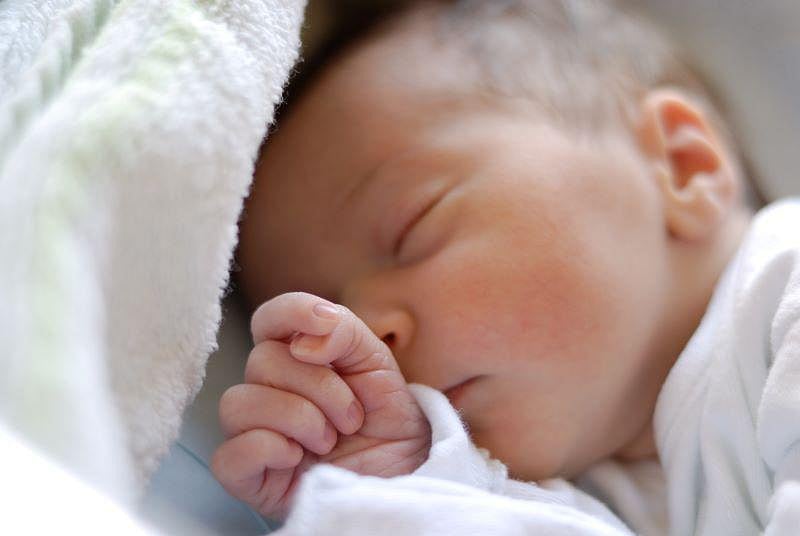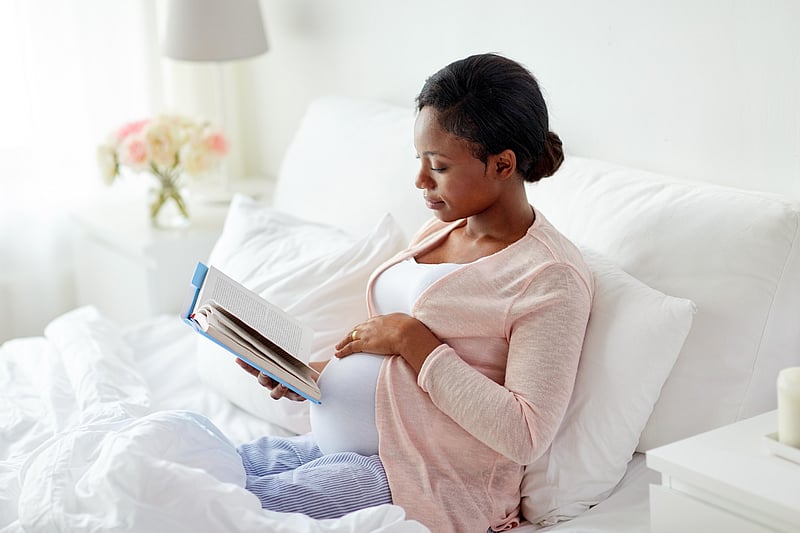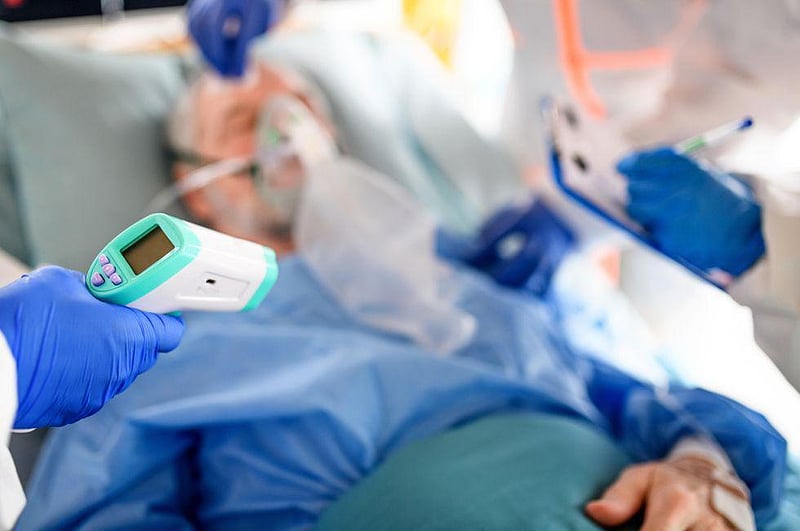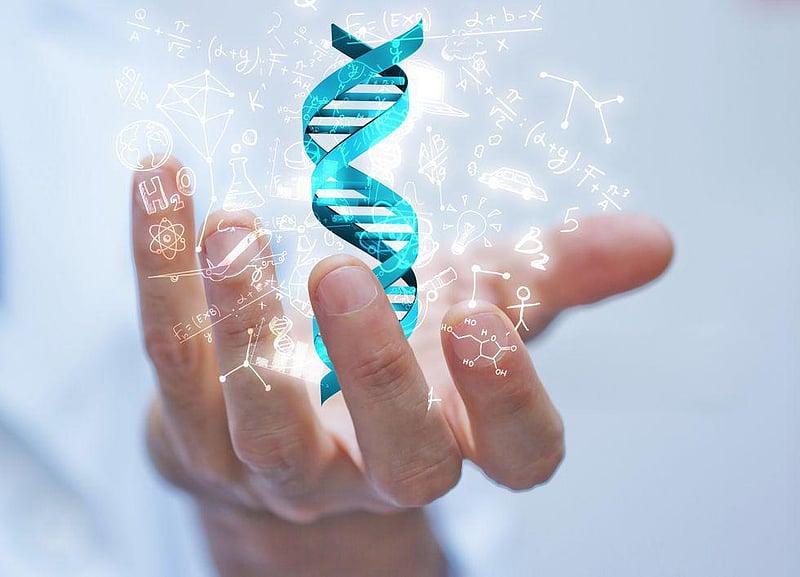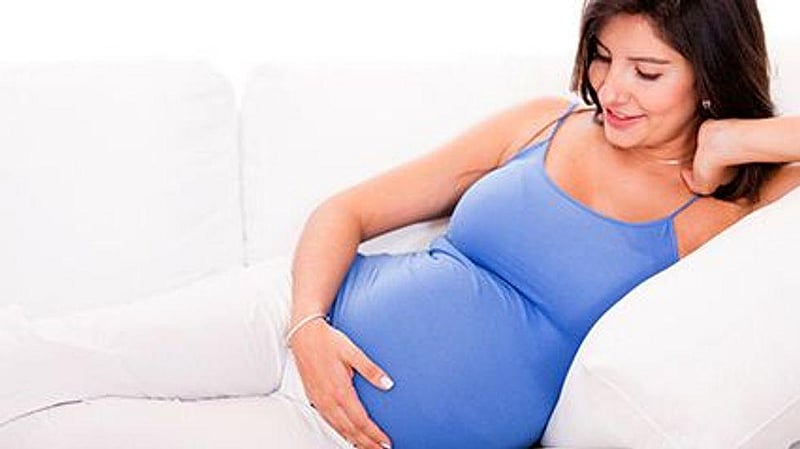Get Healthy!
Results for search "Birth Defects: Misc.".
Health News Results - 42
Doing nothing at all to manage a common fetal heart defect might improve the survival odds of babies born prematurely, compared to treatment with drugs, a new clinical trial suggests.
A “wait and see” approach to patent ductus arteriosus (PDA) doubled a preemie’s chances of survival, compared with using drugs to treat the condition, researchers reported Dec. 9 in the
- Dennis Thompson HealthDay Reporter
- |
- December 15, 2025
- |
- Full Page
Two-thirds of women in their child-bearing years have an increased risk for birth defects due to a lifestyle factor they can change, a new study says.
These risk factors — low levels of vitamin B9 (folate), unmanaged diabetes or exposure to tobacco smoke — increase the odds of a serious birth defect in any child they might have, researchers said.
Heart defects, cleft pal...
- Dennis Thompson HealthDay Reporter
- |
- August 26, 2025
- |
- Full Page
More pregnant women are turning to newer and potentially safer antiseizure medications, a new study says.
Older antiseizure drugs like valproate and phenobarbital are known to increase risk of birth defects.
But there’s been a 30% increase in the use of the safest antiseizure drugs during pregnancy, researchers report in the July 23 issue of
Some newer antiseizure medications appear to be safer for pregnant women to take without risk of birth defects, a new study says.
Second-generation antiseizure drugs like levetiracetam, oxcarbazepine, gabapenti...
- HealthDay Reporter
- Dennis Thompson
- |
- July 17, 2025
- |
- Full Page
Treating anemia during pregnancy might lower the risk of heart defects in newborns, a new study says.
Women with anemia in early pregnancy have a 47% increased risk of giving birth to a child with a heart defect, researchers reported April 23 in BJOG: An International Journal of Obstetrics & Gynecology...
- HealthDay Reporter
- Dennis Thompson
- |
- April 24, 2025
- |
- Full Page
Newborns with a heart defect may have two strikes against their future health, rather than one.
Babies with heart birth defects appear to have a higher risk of developing childhood cancer, compared to those without a heart abnormality, researchers report in the journal Circulation....
- HealthDay Reporter
- Dennis Thompson
- |
- March 18, 2025
- |
- Full Page
Pregnant women can get the COVID-19 vaccine without any fear of causing birth defects in their unborn child, a new study says.
Researchers found no link between COVID vaccination in early pregnancy and birth defects, results show.
There were also no differences in birth defect risk between eith...
- HealthDay Reporter
- Dennis Thompson
- |
- March 17, 2025
- |
- Full Page
Many women with epilepsy who are of childbearing age might not realize their anti-seizure drugs can raise the risk of birth defects or dampen the effectiveness of their birth control, a new study warns.
Likewise, some birth control methods can cause anti-seizure meds to be les...
- HealthDay Reporter
- Dennis Thompson
- |
- December 6, 2024
- |
- Full Page
For decades, it's been known that certain older medications women use to control epilepsy seizures can pose risks to a fetus.
However, data now suggests that no such risk exists for newer-generation anti-seizure meds.
“We need to balance making sure there is enough medicine on board to protect the mother and her developing fetus from seizures, but not too much where we'...
- HealthDay Reporter
- Ernie Mundell
- |
- December 2, 2024
- |
- Full Page
Women who won't leave the house without makeup or a spritz of hairspray may want to think twice about those habits when they're pregnant or breastfeeding.
New research links these and other personal care products, including hair dyes, fragrances, lotions, moisturizers and nail polishes to higher levels of so-called PFAS "forever chemicals" that are harmful to health.
Researche...
- HealthDay Reporter
- Carole Tanzer Miller
- |
- November 19, 2024
- |
- Full Page
DNA analysis of newborns can detect many more preventable or treatable health problems than standard newborn screening does, a new study shows.
Genome sequencing identified 120 babies with serious and treatable health conditions out of 4,000 newborns, researchers reported Oct. 24 in the Journal of the American Medical Association
- HealthDay Reporter
- Dennis Thompson
- |
- October 24, 2024
- |
- Full Page
A new, reassuring study finds that men can take the diabetes drug metformin without worrying that their offspring will suffer from birth defects.
Recent research raised concerns that metformin could promote birth defects in children by damaging the quality of a man&rs...
- HealthDay Reporter
- |
- October 17, 2024
- |
- Full Page
Black American infants born with congenital heart disease are less likely to survive to the age of 1, compared to white babies with the condition, a new study finds.
The research suggests that Black infants aren't reaping the same benefit from recent advances against heart defects, the researchers said.
From 2005 to 2019, “the death rate in white infants decreased significantl...
- HealthDay Reporter
- Ernie Mundell
- |
- September 30, 2024
- |
- Full Page
Babies conceived through assisted reproductive technology are more likely to be born with a major heart defect, new research shows.
That risk was 36% higher in babies conceived through techniques such as in vitro fertilization (IVF). Some congenital heart defects are life-threatening.&n...
- HealthDay Reporter
- Carole Tanzer Miller
- |
- September 27, 2024
- |
- Full Page
Pregnant women covered by Medicaid are less likely to get an ultrasound exam that can diagnose heart defects in a fetus, a new study finds.
“The 20-week ultrasound is hugely important in detecting birth defects because it involves assessment of the baby’s major organs. All pregnant people must know that this test should not be missed,” said lead researcher
Just a daily cigarette or two before or during pregnancy endangers the health of newborns, a new study warns.
Infants are 16% more likely to suffer major health issues following delivery if their mothers engaged in “light smoking” of one or two cigarettes a day prior to getting pregnant, researchers found.
Those newborns also have a 13% higher risk of landing in neonatal...
- HealthDay Reporter
- Dennis Thompson
- |
- August 21, 2024
- |
- Full Page
In an historic move, the Environmental Protection Agency on Tuesday banned the use of a pesticide that can harm fetuses.
Known as dimethyl tetrachloroterephthalate (DCPA or Dacthal), the weedkiller is used on a variety of crops, including broccoli, onions, kale, Brussels sprouts and cabbage.
However, when a pregnant woman is exposed to the chemical, it can alter fetal thyroid hormon...
- HealthDay Reporter
- Robin Foster
- |
- August 7, 2024
- |
- Full Page
Two new studies offer reassurance that using the diabetes drug metformin before and during pregnancy is not linked to birth defects.
The latest findings, which apply to men planning to conceive with their partners or women in early pregnancy, contradict a 2022 study that found metformin use by men in the three months before ...
- HealthDay Reporter
- Robin Foster
- |
- June 18, 2024
- |
- Full Page
The diabetes and weight-loss drug Ozempic does not appear to harm a developing fetus when taken by pregnant women, a new study reports.
Researchers found no elevated risk of birth defects among newborns of women who took medications to control their type 2 diabetes, compared with those who took insulin.
During the decade-long study, researchers saw an increase in people trying to co...
- HealthDay Reporter
- Dennis Thompson
- |
- December 12, 2023
- |
- Full Page
Doctors report they are seeing what they think is a new syndrome in babies who are exposed to fentanyl while in the womb.
All of the infants have cleft palates and unusually small heads, and all were born to mothers who said they'd used fentanyl and other drugs while pregnant.
Six babies were first` identified at Nemours Children's Health in Wilmington, Del., two in California and o...
- HealthDay Reporter
- Robin Foster
- |
- December 5, 2023
- |
- Full Page
Teens and young adult women who survive cancer appear to have higher odds of delivering babies with birth defects, according to a new study.
Knowing this, young women making decisions about pregnancy and prenatal care should receive appropriate counseling and surveillance, said study lead author Caitlin Murphy.
"Concerns li...
- HealthDay Reporter
- Cara Murez
- |
- October 10, 2023
- |
- Full Page
Faced with growing reports of inaccurate clinical lab tests, the U.S. Food and Drug Administration on Friday announced that it will for the first time regulate these vital diagnostic tools.
Many Americans might have assumed that the FDA already had oversight of all medical tests; it does not.
However, FDA Commissioner
Diagnosis of congenital heart defects while a baby is still in the womb offers opportunities for earlier corrective surgery. And that can mean better outcomes for an infant's neurodevelopmental and physical health, new research shows.
"For infants with critical disease especially, getting surgery...
- HealthDay Reporter
- Cara Murez
- |
- August 7, 2023
- |
- Full Page
Identifying genetic disorders in newborns and infants can help them get the care they need, but one approach -- whole genome sequencing -- appears far superior to another.
In a new study, researchers compared whole genome sequencing with targeted gene-sequencing. They found that whole genome sequencing (WGS) was nearly twice as effective at finding the abnormalities that lead to diso...
- HealthDay Reporter
- Cara Murez
- |
- July 11, 2023
- |
- Full Page
Marijuana use during pregnancy may impact the baby's brain development and long-term health, according to new research with monkeys.
THC (delta-9-tetrahydrocannabinol) -- the main psychoactive ingredient in cannabis -- altered the placental and fetal epigenome in monkeys who were given THC edibles, researchers say. These modifications can cause changes that aff...
- HealthDay Reporter
- Cara Murez
- |
- July 11, 2023
- |
- Full Page
Ambar Marcus didn't think anything of going to the follow-up ultrasound her doctor recommended around 22 weeks of pregnancy -- until she noticed how long it was taking.
"The technician was a lovely lady who chatted with me the whole time, but I noticed it felt like a very long appointment,"Marcus, who lives in Silver Spring, Md., recalled. "This is definitely the longest echo I've ever go...
- HealthDay Reporter
- Dennis Thompson
- |
- February 24, 2023
- |
- Full Page
There's good news for American mothers-to-be and their newborns: Rates of smoking during pregnancy have fallen by 36% since 2016, a new report finds.
The percentage of pregnant women who smoked was already low in 2016 compared to decades past: 7.2%. But by 2021, that rate had fallen to just 4.6%. That's according to the latest data from the National Center for Health Statistics (NCHS), pa...
- HealthDay Reporter
- Ernie Mundell
- |
- January 31, 2023
- |
- Full Page
Doctors are seeing an alarming increase in cases of a specific genital malformation in male babies, and new research suggests environmental factors might be at play.
The malformation is known as hypospadias, where the opening of the urethra is not at the tip of the penis, but on the underside of the organ.
In the study, scientists identified a direct link between hypospadias tissue ...
- HealthDay Reporter
- Cara Murez
- |
- January 20, 2023
- |
- Full Page
The number of babies born with a virus that commonly causes birth defects may have dropped significantly during the COVID-19 pandemic, new research suggests.
That was true in Minnesota, the first state to start screening all newborns for congenital cytomegalovirus (CMV).
In the five years leading up to the pandemic, about 1 in every 200 babies was born with CMV. That dropped to 1 in...
- HealthDay Reporter
- Cara Murez
- |
- September 12, 2022
- |
- Full Page
Pregnant women are exposed to toxic chemicals in dishware, hair coloring, plastics and pesticides that can heighten their risk of cancer and harm child development, a new study warns.
Public health experts have been telling pregnant women that it is safe -- and recommended -- to get a COVID-19 shot because they are at higher risk for poor outcomes and death from the virus.
New research now answers a key question about the vaccine's impact on their babies.
The vaccine is not associated with birth defects detectable on an ultrasound, the Northwestern University stu...
- HealthDay Reporter
- Cara Murez
- |
- April 5, 2022
- |
- Full Page
Babies born to fathers who were taking the common diabetes drug metformin may have a slightly increased risk of certain birth defects, a large new study suggests.
Among over 1 million babies born in Denmark, just over 3% had a birth defect of some kind. But that rate was roughly 5% among babies whose fathers ...
- HealthDay Reporter
- Amy Norton
- |
- March 29, 2022
- |
- Full Page
People who were born with a heart defect have a nearly doubled risk for severe COVID-19 illness or death and need to get vaccinated, wear masks and take other steps to protect themselves, researchers report.
Those patients at the highest risk for severe COVID-19 were 50 and older, men, and those with other health conditions such as heart failure, pulmonary hypertension, Down syndrome, dia...
- HealthDay Reporter
- |
- March 7, 2022
- |
- Full Page
Smoking in the weeks before and after conception has a potentially unhealthy effect on an embryo, Dutch research shows.
"Smoking not only impacts an embryo's growth during pregnancy and birth weight, but also embryo development right from the very early stages of pregnancy," said...
- HealthDay Reporter
- |
- February 23, 2022
- |
- Full Page
Kids with heart conditions are more likely than their peers to have frequent cavities, toothaches or bleeding gums, a new U.S. government study finds.
Researchers found that of U.S. children and teenagers with heart conditions, 10% had only "poor" to "fair" dental health, as rated by their parents. That was twice the figure of kids without heart problems.
It's a concern in part, the...
- HealthDay Reporter
- |
- February 16, 2022
- |
- Full Page
Babies conceived through infertility treatment are more likely to be born early and small.
But there are reasons other than medically assisted reproduction to explain this difference, a
Economic status appears linked to increased risk of being born with a cleft palate or lip, new research suggests, building on past evidence that it can also result in delayed care and poorer outcomes.
Cleft palate and cleft lip are the terms that describe openings or split...
- HealthDay Reporter
- Cara Murez
- |
- December 30, 2021
- |
- Full Page
When a child has severe health problems, the suffering often extends to the entire family, new research finds.
Using data from a single health insurance provider, the study authors assessed nearly 7,000 children with life-threatening conditions and their families, and compared them to a control group of more than 18,600 children without a life-threatening condition and their families.
...- HealthDay Reporter
- Robert Preidt
- |
- December 23, 2021
- |
- Full Page
Gene therapy might soon offer a new option for children with a rare genetic disorder that damages tissues throughout the body, researchers are reporting.
In a study of eight children with the condition, called Hurler syndrome, researchers found that the gene therapy was safe over two years. It also showed potential for beating the current standard treatment, stem cell transplantation.
...- HealthDay Reporter
- Amy Norton
- |
- November 18, 2021
- |
- Full Page
Women who were born with heart defects may get some reassurance from a new study that finds they face no heightened risk to health during a pregnancy and delivery.
According to the researchers, doctors may often advise these women against getting pregnant due to the potential risks for them and their babies, but until now those risks have been unclear.
"The most important finding fr...
- HealthDay Reporter
- Robert Preidt
- |
- October 18, 2021
- |
- Full Page
The number of U.S. infants born with syphilis is climbing at an alarming pace, reaching a high not seen since the 1990s, according to new government figures.
Newborn syphilis, a potentially fatal condition, was at one time nearly eliminated in the United States. But the disease has seen a resurgence in recent years -- and 2020 was no exception, say researchers with the U.S. Centers for Di...
- HealthDay Reporter
- Amy Norton
- |
- September 16, 2021
- |
- Full Page
Children whose mothers had diabetes during pregnancy are at increased risk for severe forms of common eye problems such as far- and near-sightedness and astigmatism, a long-term study suggests.
Collectively, they're known as refractive errors, conditions in which the eye is unable to properly focus images on the retina.
"As many [refractive errors] in young children are treatable, e...
- HealthDay Reporter
- Robert Preidt
- |
- August 18, 2021
- |
- Full Page

